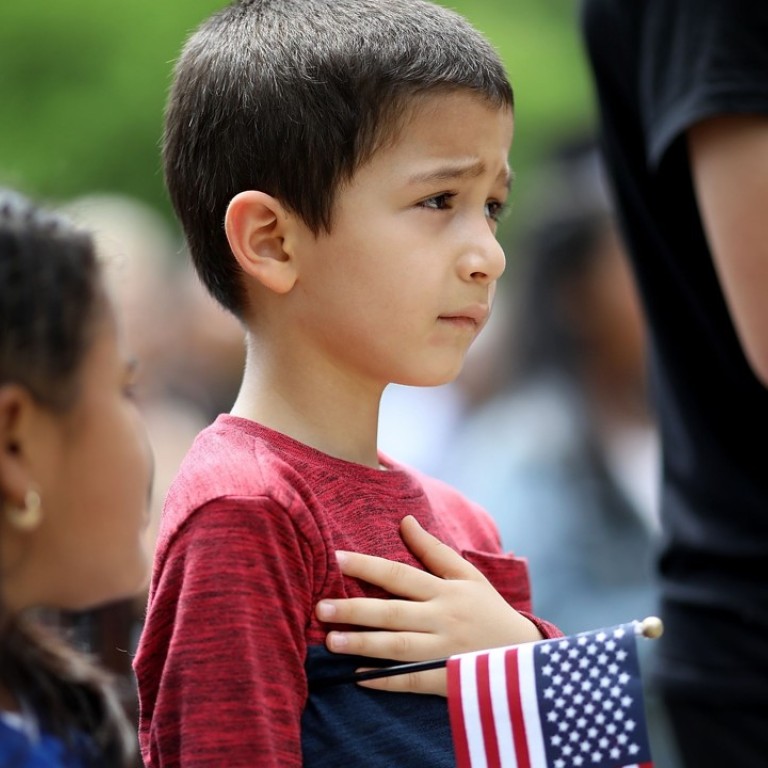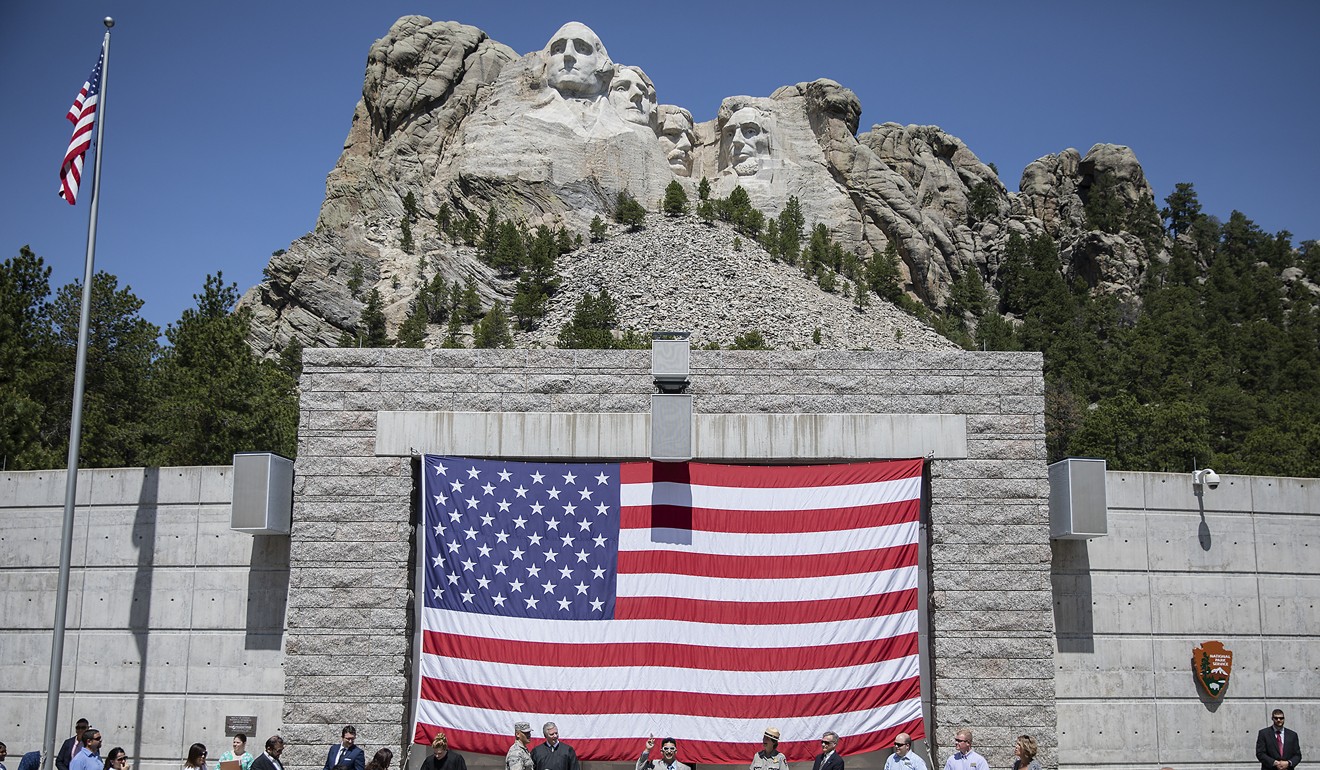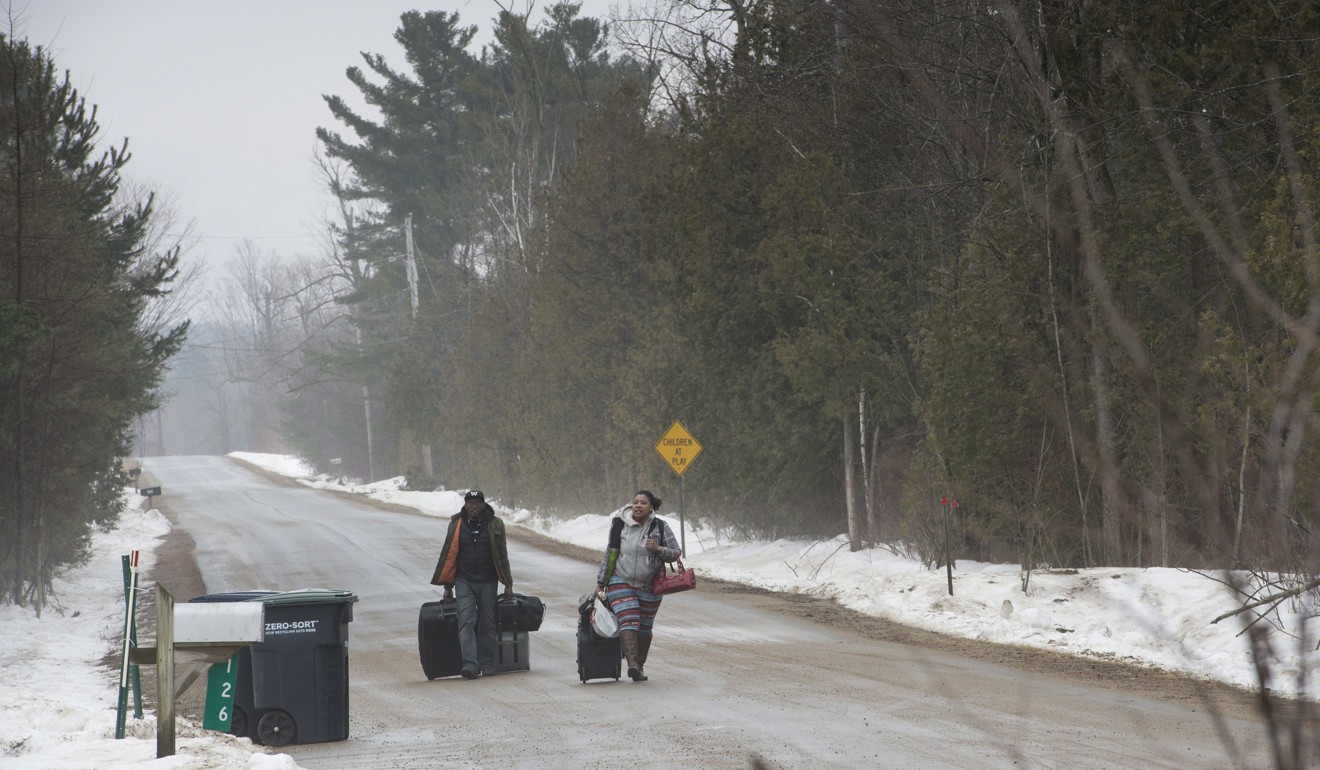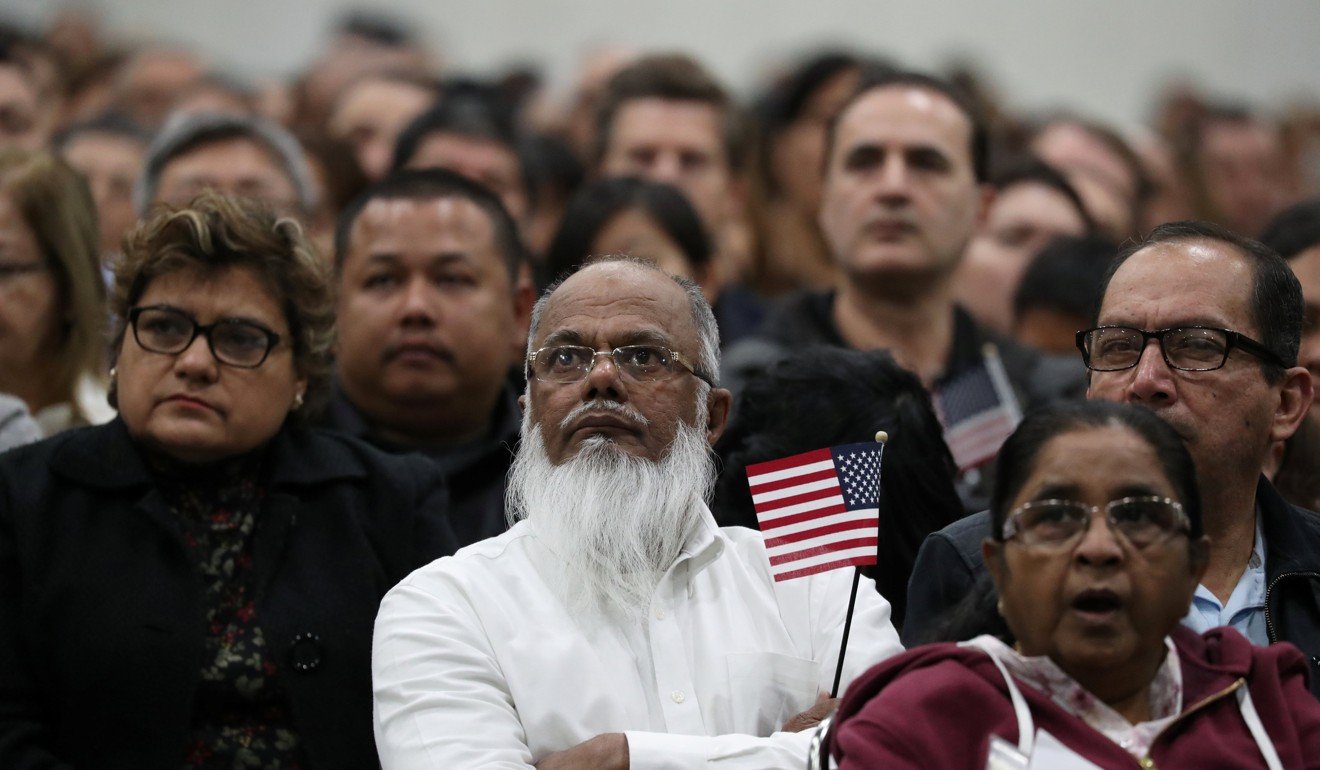
Americans and Canadians are world’s most inclusive to immigrant citizens, study finds
However, the poll found that among left-wing voters, 29 per cent felt a Muslim could not be a real American, compared with 64 per cent of right-leaning voters
Amid the travel ban, the inhumane treatment of children at the US-Mexico border and ever-more divisive rhetoric around immigration from the White House, a survey has found that Canada and the United States are the two most tolerant and inclusive countries when it comes to who the population see as one of their own – that is, “a real American” or “a real Canadian”.
Polling company Ipsos surveyed 20,000 people across 27 countries, looking at questions of religion, immigration status, the origin country of someone’s parents, as well as sexuality, criminal background and extreme political views. It found that Canadians had the broadest acceptance of who was a “real Canadian”, and that the US was close behind in second place.
Protests, facility visits planned amid US immigration confusion
The results suggest most Americans are at odds with the nativist position of the current administration of US President Donald Trump.

The survey asked people in each country whether someone with a certain characteristic could be seen as a “real” national of that country. So, for example, people in Australia were asked whether someone who is LGBT is a real Australian, or people in Argentina were asked whether someone with immigrant parents is a real Argentinian.
The results were then compiled into an “Overall Inclusiveness Index” that aggregated different responses. After the two North American countries, South Africa, France, Australia and Chile were rated most inclusive. At the bottom of the list were Serbia, Malaysia and Saudi Arabia.
Trump’s racist vitriol feeds his base. Expect more of it
However, that overall index obscures wildly different rankings on individual questions, most notably on the issue of the US and undocumented immigrants.
“What we learn from the data is that the US has a very legalistic vision of what it is to be an American,” said Nicolas Boyon, the senior vice-president of Ipsos, who led the study.
Of the countries surveyed, America had the most inclusive attitudes about immigrants who have gained citizenship. That remained true even if that citizen does not speak “our language” or have a job.

The US also ranks in the top three most accepting nations when considering whether people who are convicted felons or have extreme political views are “real” nationals.
“It shows how much this piece of paper and having pledged allegiance to the flag means. Once you’ve become a citizen you can have political extreme views, but you have to have gone through the process,” Boyon said.
‘I really don’t care’: Melania Trump’s jacket stuns on migrant visit
But if an immigrant to the US is in the country legally but not a citizen, or has lived in the US most of their life but is undocumented, the US drops down the rankings.
Just 25 per cent of people see an undocumented immigrant who has lived in the United States most of their life as American. A further 20 per cent don’t know.
Only in Mexico would more people see an undocumented immigrant who has lived in Mexico most of their lives as Mexican, than those that would not. In the other 26 countries, a majority of people either don’t see them as a national of their country or don’t know.
In some other countries, ethnicity or religion are better predictors of whether someone is seen as a “real” national. People in Turkey and Saudi Arabia tended not to accept that someone could be of a religion other than Muslim and be a real Turk or Saudi, for example.
On the question of whether a Muslim could be a real national, Muslim countries expectedly scored the highest. Among all other countries only four (South Africa, Canada, France and the US) had a majority of people who saw Muslims as real nationals in their respective countries.
Why do migrants cross US border? If they don’t, they will be killed
In Germany, which has allowed more Muslim refugees to settle than any other European country, 47 per cent of people said Muslims were not real Germans, and a further 27 per cent said they didn’t know. An outright majority of people in Hungary and Serbia said Muslims were not real nationals.
Secular countries with a long-standing separation between church and state tended to have a more welcoming attitude to atheists, with France and Canada topping the list.
Within the US, however, there was a large gap in attitudes to religion between left-leaning and right-leaning voters. Among left-wing voters, 71 per cent felt a Muslim could be a real American, compared with 36 per cent of right-leaning voters. This differential remained high for other non-Christian religions and atheism.

In China, Serbia and Turkey, more people than not believe that you are not a real Chinese person, Serb or Turk if you were born and raised in that country but your parents are immigrants.
This suggests a close link between ethnicity and a person’s status as a national in those countries, rather than a view based around citizenship.
Of the 27 countries surveyed, people in the UK were the least likely to see themselves as “a real” Briton. That could be because of the lack of nationalist fervour in Britain, but Boyon believed it was more likely that the rise of Scottish nationalism plays a role in fewer people identifying as British.
Belgium and Spain, which also have strong separatist movements, had a considerable minority that did not identify as Belgian or Spanish.

